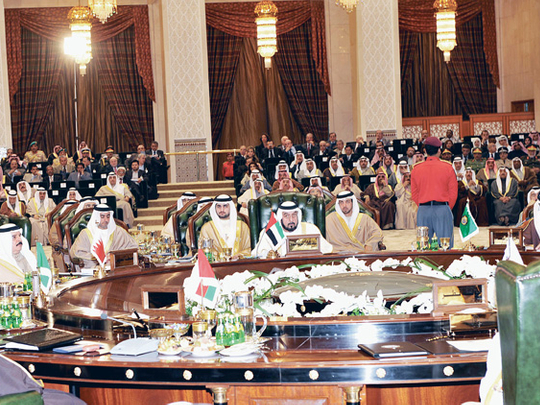
The Gulf Cooperation Council (GCC) has been drifting for some years. It is a potentially important international organisation, but it has failed to make its mark on regional or global affairs.
Its individual member states have tackled international issues with skill and influence, such as Saudi Arabia's launching of what was adopted in the 2002 Beirut Arab summit as the Arab Peace Initiative. But as a group the GCC remains invisible, even if the GCC says that it does not want to be a passive group. It claims that it wants to take a leading role in regional affairs, and many in the Arab world would like it to do more. The obvious failure of the Arab League to deliver any kind of political leadership has left a gap which the GCC is well placed to fill.
This week's GCC summit in Abu Dhabi is a chance for the organisation to relaunch itself as a force in the Arab world. The summit will have to spend some time on economic union, and try to resolve the impasse on currency union, but there is a lot more to think about.
Iran will need careful attention as the present US-led sanctions drift into eventual failure. Iraq is still not on the way to full recovery, and needs support from its neighbours. Palestine is getting more and more difficult by the day, and the looming catastrophe in Sudan is approaching very quickly with the hotly disputed referendum due in January. Yemen desperately needs well intentioned help, where the GCC is well placed to build on Qatar's noble start, and make a substantial impact in heading off a further drift to chaos in Yemen.
There is a lot to do in the region, and the GCC member states are well placed to make a substantial difference, if they can find the political will to act together.








